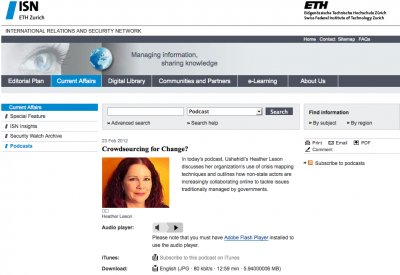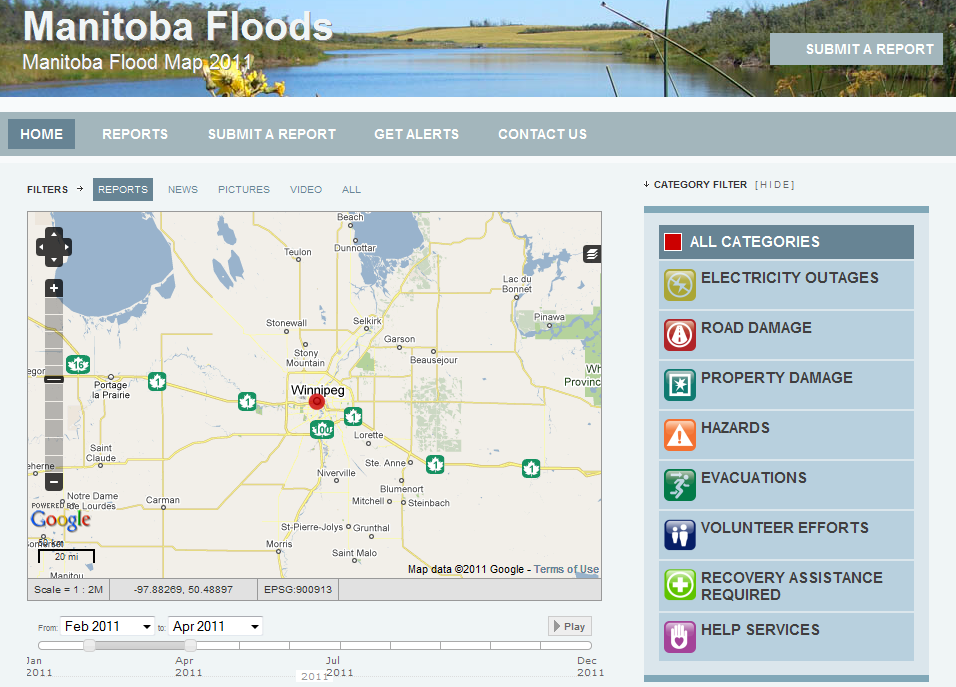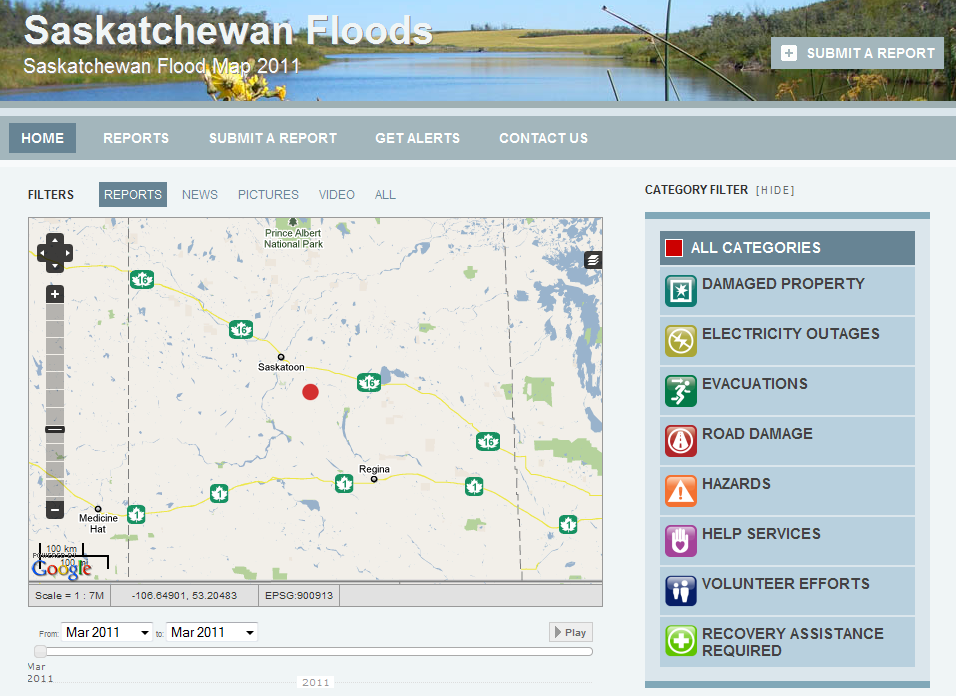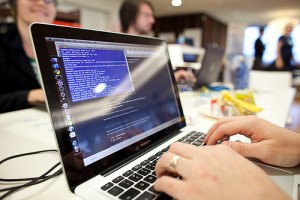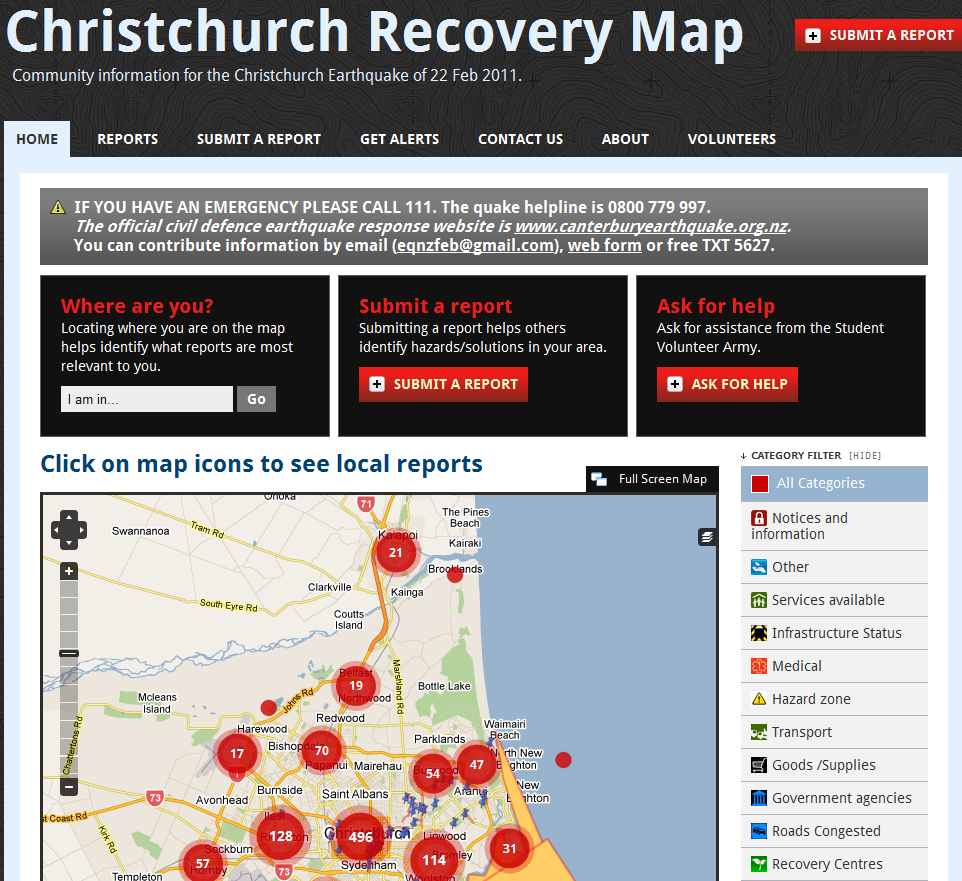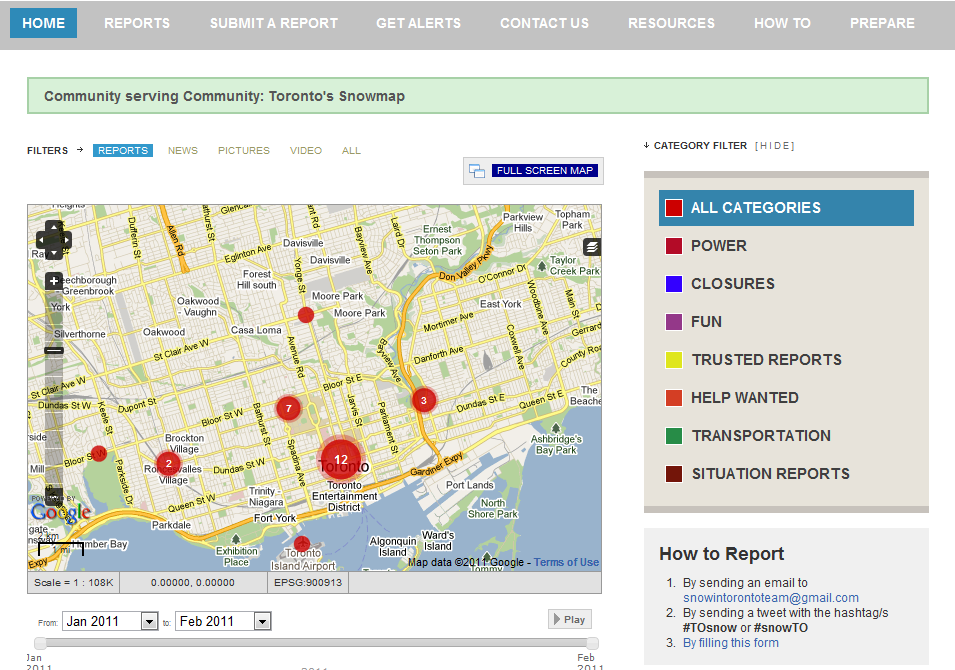Maps and Hacks Together!
[Cross-posted from the Crisismappers.net blog]
The first Random Hacks of Kindness (RHOK) in collaboration with the International Conference of Crisis Mappers (ICCM) will be held on October 13 – 14, 2012. We will brain on curated hacks that focus on humanitarian and crisismapper needs. These challenges can be maps, data, tools, and hardware that pertain to the emerging technology needs of Crisismappers. Challenges may be tool or organization specific, but the RHOK goal of open source solutions or prototypes remains.
This event provides a unique convergence of mappers, developers, humanitarians, NGOs, and governments in the same space. We truly cannot wait to make stuff and help merge dialogue with action. We’re delighted to have challenges from UN OCHA, MIT and Taarifa. More to come!
Who should attend
RHOK ICCM will be held in Washington, DC. As noted on the registration page, we seek developers (many flavours, front and back-end), data geeks, designers, and some support help (writers, videographers, and more)
Every effort will be made to include virtual participants via Google Hangout, Skype and IRC. Please register and make a note of your virtual participation.
Challenge Submissions
The Challenge Submission is slightly different from most RHOK events. First, we want to be sure that a Challenge Owner is available online or in person for the duration of the event to help guide the teams. As well, the challenge submission process is different from regular RHOK events. Willow and I will work with our teams to curate challenges based on the RHOK ICCM mandate. To submit a challenge, add your content to this page: Submitting Challenges. We will work with you on your proposed challenge to make it developer and hackathon ready. If you want to connect off list, I would be happy to exchange emails or calls (skype – heatherleson, irc.freenode.net #ushahidi)
We are accepting challenges until 19:00 EDT October 1, 2012.
More Details:
The International Conference of Crisis Mappers is the largest and most active international community of experts, practitioners, policymakers, technologists, researchers, journalists, scholars, hackers and skilled volunteers engaged at the intersection between humanitarian crises, technology, crowd-sourcing, and crisis mapping.
As you all know, Random Hacks of Kindness is an event and community that brings together similar minds for quick sprint-like “hacks” aimed at prototyping solutions for real world problems. The event will be held on October 13 -14, 2012 at George Washington University. The goal of RHOK ICCM is to unite the hacking (technical communities) with the humanitarian communities.
Registration
ICCM RHOK registration is separate from the main ICCM events. It is free and open for any participation. We are very thankful for our sponsor, the AT&T Developer Program, for making this possible.
Willow and Heather

